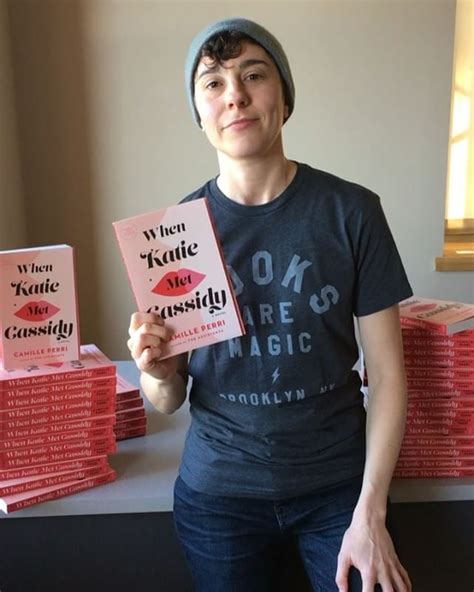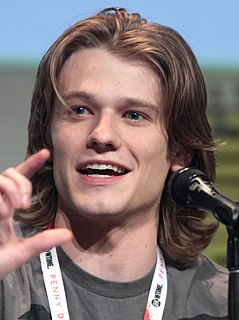A Quote by Debbie Millman
People do not read first. First and foremost, they see color. Then they see numbers, then shape, and then, if you still have their attention and they understand what you put in front of them, then they will read.
Related Quotes
I have found in life that if you want a miracle you first need to do whatever it is you can do – if that’s to plant, then plant; if it is to read, then read; if it is to change, then change; if it is to study, then study; if it is to work, then work; whatever you have to do. And then you will be well on your way of doing the labor that works miracles.
When we stop fighting with ourselves, we aren't creating anymore conflict in our mind. Then our mind can for the first time relax and be still. Then for the first time our consciousness can become whole and unfragmented. Then total attention can be given to all of our thoughts and feelings. And then there will be found a gentleness and a goodness in us that can embrace all that is been given in the world. Then a deep love for everything will be the result of this deep attention. For this total attention, this soft and pure consciousness that we are, is nothing but Love itself.
It is terribly important to realize that the leap of faith is not so much a leap of thought as of action. For while in many matters it is first we must see then we will act; in matters of faith it is first we must do then we will know, first we will be and then we will see. One must, in short, dare to act wholeheartedly without absolute certainty.
Young screenwriters are always very frustrated when they talk to me. They say, 'How do we get to be a screenwriter?' I say, 'You know what you do? I'll tell you the secret, it's easy: Read 'Hamlet.' You know? Then read it again, and read it again, and read it until you understand it. Read 'King Lear,' and then read 'Othello.'
I am a big fan of the electronic book. I hate to see the old bookstores close, but they have to reinvent themselves. I believe the First Edition bookstore will be the next thing. People will read electronically, then decide they want to own that book. The author will then be invited to the old bookstores to sign. I think books will always be with us, but they will fill a different need.
What I do usually is read the book first, for pleasure, to see if my brain starts connecting with it, as a movie. And then, if I say yes, I read it again, only this time I take a pen and, inside the book, I say, "Okay, this is a scene. I don't need this. I'm going to try this. I'm not going to take this." And then, I use that book like a bible and each chapter heading, I write a menu of what's in that chapter, in case I ever need to reference it. And then, I start to outline and write it. I get in there and it starts to evolve, based on having re-read it again.
I never hit a shot, not even in practice, without having a very sharp, in-focus picture of it in my head. It's like a color movie. First I 'see' where I want it to finish, nice and white and sitting up high on the bright green grass. Then the scene quickly changes and I 'see' the ball going there: its path, trajectory, and shape, even its behavior on landing. Then there is this sort of fadeout, and the next scene shows me making the kind of swing that will turn the previous images to reality.
I tend to write things seven times before I show them to my editor. I write them seven times, then I take them on tour, read them like a dozen times on tour, then go back to the room and rewrite, read and rewrite... I would never show him a first draft, because then he's really going to be sick of it by the twelfth draft.






































